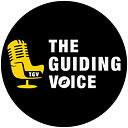Kabir Das’s Doha inspired me to become a #productivitymonk
Above Doha inspired me to become a #productivitymonk — the true translation of above Doha reads like this.
If you can do it tomorrow, do it today; if you can do it today, do it now. Disaster can strike at any moment, when will you do it then?
In today’s post, I am sharing 11 #timemangaaemetn tips that worked well for me.
To start managing your time more effectively, first take a pause to analyze where you are spending most of your time — and where you don’t.
This activity helps to identify time wasters — those little things that eat at your time without you noticing. You’re surrounded by them — coffee breaks, a friendly chat, a personal e-mail.
Or perhaps your desk is so disorganized, it takes you an hour to locate a client’s file.
Maybe you have difficulty saying “no” and put off an important task until the last minute — that’s procrastination.
If any of this sounds familiar, you need to learn time management strategies.
1) Start by getting organized.
2) Use a TO-DO list to track your tasks, and update it as you go along. I maintain a virtual to-do list in my mind. I revisit on a frequent basis whether the tasks planned for that day are complete or not. If you are not good at remembering things, you may use physical or virtual post-it notes to create a to-do list and strike the tasks off — as and when they are complete.
3) Then clean up your desk/Email
Remove unwanted or old items and organize work into categories.
Implementing 5S (Sort, Set In Order, Shine, Standardizer and Sustain) should help you stay organized by freeing clutter and keeping only those required things.
If your job involves tracking customer data — digitally or on paper. It is advisable to create a filing system and label all files clearly. Also, it is better to store files on the cloud so that your co-workers can also access them
4) Prioritization is another strategy that can help structure your day.
Ideally, focus on top-priority activities — say, things that are due today — before tackling tasks due next week.
You can even place tasks into categories — MUST do, SHOULD do, and NICE to do.
Or you could prioritize messages into “ Urgent” and “ Later” and deal with them accordingly.
And most importantly delete unnecessary messages that you don’t need.
5) Another effective time management strategy is: to do it now.
Stop postponing stuff. Ask yourself, why not now? — I diligently follow this principle — in fact I do things as if there is no tomorrow. Try to empty my plate by end of the day.
6) Also, do the toughest job first — they say “EAT the frog first”. If you keep pushing tough jobs to the last, it will cause negative repercussions. Most people try to finish easy things first — but they get stuck at the last one (biggest) — so avoid this mistake!
7) Perhaps the task at hand is boring or unpleasant.
If you have to, delegate the task or seek help from peers or friends, or colleagues. But it would be so much more satisfying once the job is done!
If you’re afraid of failure, take control of your fear to meet the challenge head-on.
8) Maybe you just don’t know where to start. In this case, start with something you know and as your confidence grows, the job will seem simpler. Jump right in!
9) But when things threaten to overwhelm you, another strategy is to say “ NO” occasionally(and confidently).
If saying “ YES” means you’re neglecting priority tasks, then your answer should really be “ NO” You can determine when to say “ NO” by reviewing your to-do list. And control the urge to be perfect — be realistic about your abilities.
10) Also, most importantly stay focused. If we are focused, we will be efficient in doing things. For example, you were in middle of a data analysis working on multiple spreadsheets, suddenly you were called to another meeting and when you come back to work, it will take some (significant) time to get back on track.
11) Interruptions may come from a colleague or a workplace friend while a customer demands your attention.
Make allowances for this, but don’t get distracted. I am not saying that you should avoid socializing with co-workers etc. it is all about how much time are you spending talking to them. Be mindful.
Try to minimize interruptions, and mostly, finish one task before you start the next.
So don’t waste time — get rid of those time stealers to make the most of your day.
These are a few tips from my side — I am sure you might also be following so many practices that help in managing your time wisely. Curious to see your input on #timemanagement.
Please leave your comments!
Thanks for reading!
Originally published at https://www.linkedin.com.
